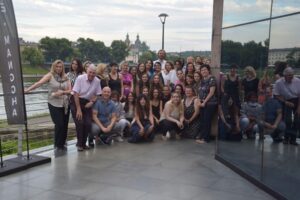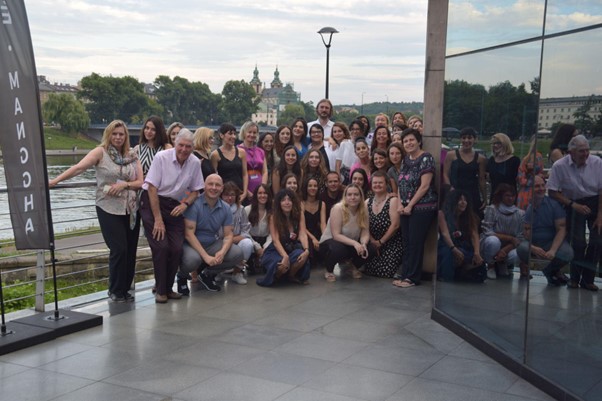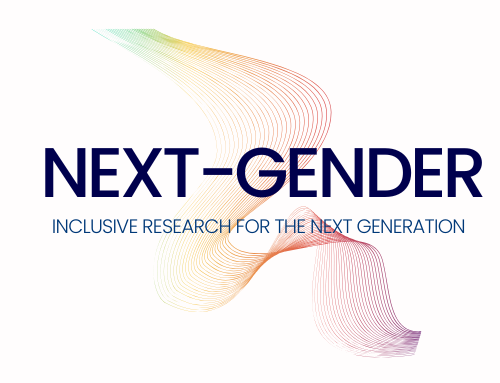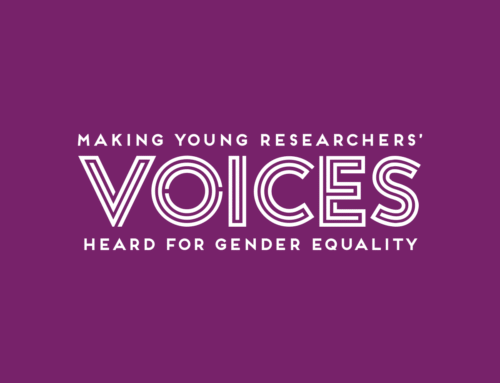Anna Hata and Jowita Radzińska
“What is intersectionality?” Some of you reading this has come to this question, perhaps seeking a more equitable world for ourselves or people we care, or having experienced discrimination based on race, gender and/or other identities personally. Some of you may have little experience with social justice, but may want to seek a better understanding of inequity in the society you live in.
Seeking a change in our community, experienced and early career researchers from diverse countries and academic fields gathered and became connected in Krakow, Poland, to unpack the complexity of intersectionality and apply it in our research, through The Intersectionality, Research, and Action International Summer School (IRAISS) held between July 15-17 2022. IRAISS was organized within the Working Group 5 Intersectionality, led by Dr. Victoria Showunmi and Jennifer Dahmen-Adkins, and with the support of the organising team led by Marta Warat.
The summer school welcomed 65 people which included 45 Early Career Researchers (ECR) participants, 10 Management Committee (MC) & Core Group Members (CG) 10 trainers. Participants had diverse backgrounds involving those who identified as White European’s, two or more nationalities, Turkish, Black, Middle Eastern and Asian, including those who contributed online. Professors and researchers with disabilities also played a key role in stimulating discussion. The range of the participants was from age 24 to over 60. The majority of the participants were members of Generation Y who were born in the 1980s and through the late 1990s, which is the generation that can play the biggest role in breaking gender barriers and promoting equality.
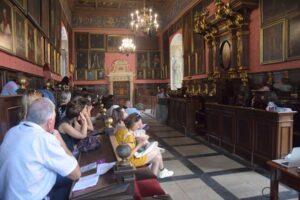
The IRAISS was designed as a focused and innovative opportunity to engage novice and experienced scholars and activists in critical discourse, research, and epistemologies on intersectional research, theory, and practice. Lectures and discussions took place at the Jagiellonian University, some of them in the oldest, from XIV century, building. We were inspired! The program was extensive and included sessions on intersectionality and issues of race, LGBTIQ+ diversity, mental health, gender.
The summer school has become one of the first successful summer schools in the Cost Action. Majority of participants (60%) strongly agreed that they gained more knowledge on the topic of intersectionality, and approximately 58% of them strongly agreed that they are more aware of how intersectionality personally affects them, in the follow-up survey conducted by the working group after the summer school. Importantly, a total of 91.1% of participants agreed or strongly agreed that they plan to apply the knowledge they gained on intersectionality to their everyday life and curriculum. These positive outcomes resulted from the well organised structure of summer school and engaging sessions.
Dr. Victoria Showunmi, the working group leader of intersectionality and an associate professor at University College London (UCL) leading research using intersectionality in education and various fields, reflects on the success of the intersectionality summer school despite the challenging contexts.
“When I took on the role as leader for WG5 Intersectionality and became aware that one of the first tasks was to design and develop a summer school for July 2022. As I said yes, the war broke out between Ukraine and Russia whilst we were still coming out of the Pandemic. I knew it was going to be a challenge and would require all of my skills, knowledge and experience to ensure that this would be the best I could make it. It was a new Cost Action project with an ambitious agenda. The summer school was a success on every level. There were of course some hiccups, however this was not noted as we smoothed out any issues before the participants understood.”
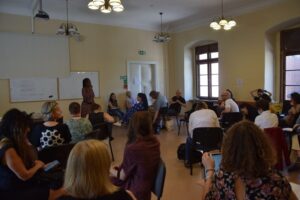
IRAISS had an impact on researchers at different stage of academic career as well as familiarity with the topic of intersectionality. Jowita Radzińska, who made her first steps into the subject during IRAISS said
“The summer school in Krakow was my first serious encounter with intersectionality. And I am delighted with this meeting! An intersectional lens applied to social reality is an experience that cannot be forgotten. And it is perfect! Once learned, or perhaps even more – felt, it records strongly and does not allow you to perceive certain things as before. The methodological workshops with an intersectional approach to research design were particularly important to me. Immediately after returning from school, I made some changes to the projects in progress and added a new analytical category to the completed ones. I plan to be sensitive to intersectional issues in the following research studies.”
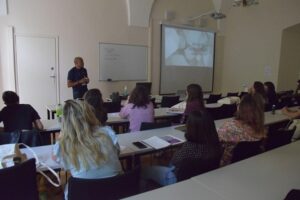
The summer school gave positive influence on early career researchers to apply and use intersectionality in empirical research. Anna Hata, a PhD candidate at UCL, writes her PhD thesis using an intersectionality as a theoretical and methodological lens to analyse inclusion and exclusion in education experienced by children from marginalised social categories. She joined the summer school in her first year of PhD journey and reflects on how the summer school helped her to develop her research;
“Intersectionality is a very powerful analytical lens. The summer school was an excellent opportunity for me to learn about various approaches to use intersectionality in empirical studies from experienced researchers such as professors from different universities across the world. My research uses intersectionality as a theoretical and methodological framework to analyse compounded challenges in education experienced by students in low and middle income countries. However, it has not been easy for me to identify methodological tools drawing on intersectionality which can be used with students in low and middle income countries in the literature. Having various advice and insights from experienced researchers in the summer school has given me new knowledge, and enhanced my motivation to continue working towards developing creative methodologies to address intersectional issues in the field of education and international development.”
The summer school also opened doors for experienced researchers in various disciplines from diverse countries to become familiar with intersectionality as an analytical tool, by providing a comprehensive introduction. Rakibe Külcür, a management committee member of the COST Action and an experienced researcher working in various fields including gender economics, environmental justice, climate change and political sociology at the United Nations Studies Association Viena, was one of the experienced researchers who found the summer school an eye-opening experience
“The summer school was very useful and eye opening because there were several topics including intersectional lens. I was not aware of the significance of intersectionality when it comes to access to medical attention. Although I was familiar with the concept, it gave me new perspectives on its importance.”
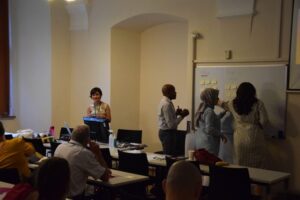
As one of the key outcomes of the summer school, participants shared their understanding on intersectionality by giving their own voices to the question- “What does intersectionality mean to you?”
- Intersectionality means understanding that there are various different aspects of ones identity that affect their experience of the world.
- Being aware of my specific characteristics and how these shape my understanding of the world and its conflicts/power imbalances.
- The interconnected nature of social categorization such as race, class, and gender as they apply to a given individual or group, regarded as creating overlapping and interdependent systems of discrimination or disadvantage.
- Analytical framework for understanding how social categorisations such as race, class, and gender, regarded as creating overlapping and interdependent systems of discrimination or disadvantage. And, at the same time, how these social categorisations impact in our research (knowlege situated)
The summer school also became a space to meet like-minded people and nurture friendships among researchers, which will become the foundation of continued dialogue on intersectionality across disciplines. The following voice sums the voice of many participants of the summer school:
“This was a great opportunity to fully immerse myself in the community/group and have the time and space to reflect on intersectionality alone and with colleagues. This is not normally possible when you are working. I’ve met some like-minded people and made new friends. It was great, thank you!”
Taken together, the intersectional summer school in 2022 was a successful milestone. The intersectional international summer school will continue to pave the way for an intersectional gender voices early career framework.
